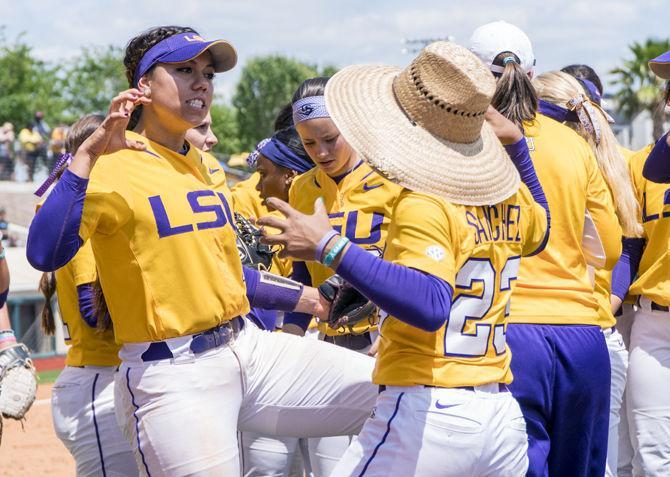Bayou Bengals once again lounge in the Quad between classes, and yet no one has attempted to burn down our decrepit but beloved Club Mid.
With all the rabble rousing during Student Government’s contentious debate over whether to embrace a plus/minus system or nah, students should have rioted after one look at that A-minus.
Instead, they accepted their situation with a heavy sigh of acceptance and a stiff drink to soothe tired eyes.
I can understand why some students may want a 90 to weigh the same as a 97 on their transcripts. Last spring when I ran for College Council vice president for the College of Humanities and Social Sciences on the More for LSU ticket, we vehemently campaigned against the implementation of the new grading system.
But, once the fog of the campaign cleared, I reevaluated my position and now understand why the university needs to give credit to the work and effort it takes to achieve a high-caliber grade.
Just as it is immoral to deny workers overtime, it is immoral to deny a student explicit recognition for their outstanding work in the classroom.
LSU was late to the party of transitioning to a weighted grading scale in relation to its Southeastern Conference peers. The University of Georgia implemented the system in the summer of 2006. The University of Mississippi implemented it in the fall of 2011, and Vanderbilt University has also used plus/minus grading.
Students at other schools were getting the extra points earning high marks. Meanwhile, LSU attendees weren’t, putting them at a disadvantage. Common sense would necessitate valuing a student with a B+ on their transcript from UGA over one with a standard B. Now this would not be fair if the B+ was a 87 from UGA and the B was a 89 from LSU.
The fault doesn’t lie with the employer, internship recruiter or law school application committee member if they can not clearly designate the difference between the two marks.
Now that LSU has implemented this weighted grading scale, the situation described above no longer takes place.
Regardless of the merits a plus/minus grading scale holds, the fact remains some detractors are entrenched in believing mediocrity deserves praise.
This strongly correlates with what professors Bradley Campbell of California State University and Jason Manning of West Virginia University in Time Magazine call the “new morality” on college campuses. Individuals engrossed in campus outrage culture may feel their work, regardless of its caliber, needs to be treated with a certain level of respect once it meets a standard grade threshold.
As a matter of fact, it shouldn’t.
It is not bullying to tell someone to buck up, kick it into high gear and make something of themselves. This new grading system could be the motivating factor for some to take school more seriously.
Excluding family and health issues, the fault in our grades lies with us, especially with resources such as office hours and free labs catering to the various needs essential to pumping every last point out of an assignment.
The status quo deemed the separation of the good from the great inconsequential. The difference may be minute to some, but I for sure want to know the doctor treating me has better than passable skills when they are the caregivers to my well-being.
Garrett Hines is 21-year-old political science senior from Monroe, Louisiana. You can reach him on Twitter @GarrettH_TDR.
The plus/minus system is good for students
January 19, 2016
03.26.15 Middleton Library
More to Discover
















